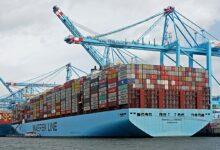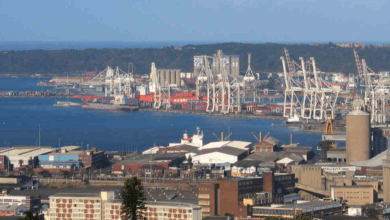
11 Factors Affecting Economic Growth in Nigeria
You can put factors affecting economic growth in Nigeria into economic and social factors. This article will discuss those factors that hinder economic growth such as inflation, interest rate, corruption, inability to process raw materials to finished goods, etc.
Let us expose these factors that cause economic problems that limits Nigeria, so that we can deal with them and enjoy inclusive sustainable economic growth.
👉 Relocate to Canada Today!
Live, Study and Work in Canada. No Payment is Required! Hurry Now click here to Apply >> Immigrate to Canada
11 Factors Affecting Economic Growth in Nigeria
We begin with the Social factors, which includes …
1. Corruption
In Nigeria, corruption occurs in many areas but the most common is corruption of government officials. Newspaper reports quoting EFCC, give large figures of amounts past government officials have allegedly stolen.
Ministries, Directorates and Agencies of government have a staff or two who would disrupt the smooth flow of the system to extort or get bribe from the public for a free service.
These staffs put needless hurdles to delay or make a simple process hard, creates artificial scarcity, make the office environment oppressive, or come late to work so that the people are anxious and ready to part with money to get quick service.
Corruption affects the economy daily making government projects costlier; contractors to do poor jobs, worsening state of infrastructure in the country, and helping unqualified students to gain admission into universities, etc.
2. Red Tape
Red tape makes government slow and costly. It costs much more to get anything done due to red tape in the system. For instance, paying tax is difficult, clearing your goods at the ports is hard, and registering a new business is an uphill task.
In addition, due to the inability of Nigeria to enforce contracts, you cannot move goods freely or trade across the borders easily despite treaties signed with members of Economic Community of West African States (ECOWAS).
Because of the sorry state of service in these government establishments, you cannot celebrate any Ministry, Department or Agency of Government. To confirm this claim, Word Bank’s 2017 Doing Business Index place Nigeria 169 out of 190 countries.
👉 Relocate to Canada Today!
Live, Study and Work in Canada. No Payment is Required! Hurry Now click here to Apply >> Immigrate to Canada3. Terrorism
Many foreign investors stay away from Nigeria and some of those already in the country end their investments to take them to safe havens.
Nigeria has become notorious for being home to the second most deadly terrorist group in the world next to ISIS. Nigeria has suffered reproach because of Boko Haram who kills and maims innocent citizens in the north-east of the country using suicide bombers.
This state of insecurity is scaring foreign investors away from the country. To stop capital flight, government must decimate Boko Haram so that the economy in that area will go back to normal, and restore confidence in our security apparatus and their ability to secure the land.
4. Insurgency
Militancy in the Niger Delta is one of the major factors affecting economic growth in Nigeria.
Kidnapping and blowing up of major pipelines carrying crude oil for export, and disruptions of crude oil production of 2.2 million barrels per day, almost crippled the nation’s economy when it reduced to half.
The Nigerian economy depends solely on foreign exchange earnings from the sale of crude oil and gas. Until the country diversified its sources of earning foreign exchange to sectors such as manufacturing, solid minerals, and other services, the country’s economy may not improve totally.
5. Over Dependence on Import
Some Nigerians see use of imported products as status symbol. They believe eating imported corned beef, Uncle Bens Rice, Baked Beans and drinking exotic Wines, identifies them as high-class citizens.
Nigeria imports basic things such as button, thread, matches, torch lights, and tooth-pick, because of this unusual taste and reliance on imported goods for consumption.
Secondly, lack of constant power supply makes importation cheaper for companies like Michelin and Dunlop who now import tyres, than make them in the country.
Thirdly, due to lack of constant electricity supply, some manufacturing companies have relocated to Ghana Nigeria’s neighbor causing loss of many jobs.
Until Nigeria produces all that it consumes in the country to earn more foreign exchange, the economy will suffer from over dependence on imported goods, which kills our local factories and put untold pressure on the available foreign exchange meant for import of essential raw materials.
6. Poor Infrastructure
Poor Infrastructure such as lack of constant power supply and transportation system hinders businesses in Nigeria from doing well. Poor infrastructure doubles the cost of production and sale of finished goods in Nigeria.
The roads need repairs due to destruction caused by haulage of goods by road instead of using train on railways.
The cost of Power is a huge cost of production all business in Nigeria carries. For example, all GSM telephone service providers use diesel to power their Cell sites with telecommunication Masts scattered all over the country.
If there is consistent power the business will be more profitable, pay more tax and hire new staff.
From what we have covered so far, you can see how those social issues are part of factors affecting economic growth in Nigeria.
Next, let us discuss how some economic factors affect the economy too. The Economic factors affecting economic growth in Nigeria are …
7. Inflation
In economics, inflation is simply higher prices due to increase in the supply of currency or credit compared to the ease of access to goods and services, which cause price to rise and lowers purchasing power of people.
In addition, inflation is constant rise of the price of scarce goods and services in the market. When this happens, you buy the same quantity of products you normally buy with large amounts of money.
For example, if people have to pay large amounts of money to buy a loaf of bread, this will affect their standard of living. This is dangerous for the economy as it leads to many social problems such as – armed robbery, prostitution, insecurity, unemployment, recession, high interest rates, etc.
The next thing to consider is interest rate. This is one of the factors affecting economic growth in Nigeria.
8. High Interest Rate
High interest rates cause distortions in the economy, reduces growth of business, and stops consumers from borrowing to finance development of real estates, new businesses, personal loans and home improvements.
For example, due to high interest rates prevailing in the Nigeria Financial sector, Small Medium Enterprises (SME’s) are unable to get credit to expand their businesses, and those that wish to start new businesses cannot get loans.
The effect on the economy is high rate of unemployment, frustration, and high cost of imported consumer goods.
In addition, importation keeps jobs in those foreign countries while Nigeria employers; lay off staff since they have no access to credit to expand their business.
However, if interest rates fall, this could make industries to grow and expand, create employment and cut inflation or cost of living (i.e. the sum of money spent on food, clothing, housing, and other vital necessities).
9. Worth of the Naira
The value or worth of the naira is one of the factors affecting economic growth in Nigeria.
The worth of the naira to other currencies at any time is vital for easy planning, production and importation of raw materials, and sale of finished goods for all businesses in the country.
The value of the naira depends on the money printed by the government and the measure in supply, whether industries are productive or import dependent, and how manufacturers source raw materials. All these factors affect value of the currency. Also, printing more money lowers its worth or purchasing power.
Secondly, as consumers buy more imported goods; this will negatively affect local industries that are unable to sell local substitutes due to high price. This will in turn create build up of unsold stock, which eventually kills businesses.
Therefore, for local companies to have competitive advantage (i.e. enjoy lower production costs than rivals), the naira should be stronger than currencies of countries that sell inputs and raw materials to Nigerian manufacturers, so that local companies can produce and sell at a lower price or at the same price of imported goods.
The stronger the naira, the more competitive, the price of products of companies that depend on inputs from other economies will be. If the naira is weak, products that depend on inputs and raw materials from foreign countries will become expensive.
From above analysis, you can see that a sector of the economy can either strengthen or weaken depending on how it sources its production inputs and raw materials.
If the worth of the Naira falls, it could create depression in the manufacturing industry or boost it if the value of naira rises. For this reason, strong and stable Naira is vital for the survival and growth of many businesses in the country.
10. Inability to Process Raw Goods into Finished Products
Inability to process raw goods into finished products is one of the factors affecting economic growth in Nigeria.
This problem is so bad that it costs the country and its farmers, agricultural commodity and solid mineral exporters millions of naira yearly.
For example, you need a produce buyer who has capacity to store and process into finished goods for most agricultural products, if you wish to maximize the sales price of raw agric products harvested from the farm.
To increase worth of raw goods, you must add value to it by processing and packaging it for the consumer. If you do this, the economy will grow, and farmers would earn more from their harvest.
For example, once you harvest tomatoes, they start spoiling. The way of harvesting it, storage in tiny baskets and transportation to the market by trucks on our roads, cause the tomatoes to spoil.
Since most farmers may not finish selling their harvest in one day, they will continue to spoil until there is nothing to salvage due to lack of storage facilities.
However, if there are big produce buyers with large storage facilities, they would go to the farm gate to buy and transport the same in their cooling vans for sale to manufacturers that could process the tomatoes into puree in their factories.
As for the solid minerals sector, they experience the same problems. The products do not pass quality test when you sell them raw but if processed, they would fetch more money from buyers.
For a commodity such as Shea butter, when you process it to meet international standards, it could fetch a lot of money in the International market.
However, due to lack of skill and equipment, even after it is processed, it usually falls below the basic purity standards that are acceptable by foreign buyers and so it is sold far below its worth.
This affects growth in the economy adversely.
Read More on: problems facing agricultural marketing in Nigeria
11. Government Regulation
Government regulation is important to keep standards that all operators in an industry must follow for the safety of consumers, employees, natural resources and the environment.
Government enforces safety standards so that growth of the economy would not cause environmental damage. Some areas of focus are production of medicine, food, health, oil sector and financial sector, etc.
Excessive regulation could harm small and medium scale enterprises that are just starting and even big companies and cause a slump in the economy.
Examples are some policy pronouncements in the banking sector by the Central Bank of Nigeria. Two of such, are the removal of commission on turnover and reduction of charges for withdrawing money from another banks ATM machine.
These policies may have reduced the banks’ profitability and led to sacking of many bank workers by major banks, which worsened the state of unemployment in Nigeria.
Conclusion
Factors affecting economic growth in Nigeria are social and economic issues which include corruption, poor infrastructure, inflation and worth of the naira, to mention but a few.
Therefore, to ensure sustainable economic growth, government should watch and manage those factors, create price stability and the enabling environment for the private sector which is the engine of growth to thrive.






